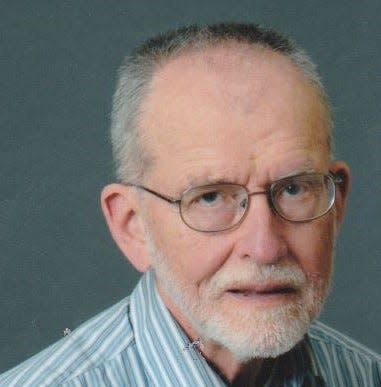Religious fanaticism: Struggling with cosmic uncertainty

Why do religious believers want everybody to agree with their ideas? Why do so many try to force people to agree when they cannot persuade them? Consider the Grand Inquisitor story, part of "The Brothers Karamazov," a novel by Fyodor Dostoevsky (1821-81).
Jesus shows up in 16th century Spain during the peak of the Inquisition. He comes to a "town where just the day before … in the presence of the king, the court, knights, cardinals and the loveliest court ladies … the Cardinal Grand Inquisitor had burned almost a hundred heretics at once ad majorem gloriam dei. (for the greater glory of God)."
Jesus is recognized, arrested and hauled before the Grand Inquisitor, who threatens to burn Him at the stake too.
The Grand Inquisitor asks Jesus why he has returned to spoil the work of the Church. He criticizes Jesus for failing to perform the miracles proposed by the devil, which would have convinced everyone that he was indeed the Son of God.
The Inquisitor explains that "man seeks to bow down before that which is indisputable, so indisputable that all men at once would agree to the universal worship of it." The Inquisitor then continues:
"For the care of these pitiful creatures is not just to find something before which I or some other man can bow down, but to find something that everyone else will also believe in and bow down to, for it must needs to be all together. And this need for communality of worship is the chief torment of each man individually and of mankind as a whole…. In the cause of universal worship, they have destroyed each other with the sword. They have made gods and called upon each other: 'Abandon your gods and come and worship ours, otherwise death to you and your gods.'"
But why do people get so upset with those who reject their religious ideas.
The explanation may be that most people are very uncertain about their religious beliefs. The more uncertain they are, the more loudly they proclaim their certainty, for they are trying to convince themselves. And the more uncertain they are, the more they want everybody to affirm their convictions. If everybody agrees, their convictions cannot be wrong!
Ideas about the physical universe can be tested experimentally, and we can therefore have some confidence in ideas which pass the test. But religious beliefs can only be tested by living on their basis and seeing where they take us. Total certainty is not appropriate in either case, but certainty is far less appropriate about theological matters.
Poet William Butler Yeats (1865-1939) may have exaggerated when he noted that:
"The best lack all conviction, while the worst
Are full of passionate intensity. "
But wise people will be skeptical about grand schemes, political, religious, or — worst of all! — a combination of political and religious, promising to make the world perfect if only everyone will agree with them. As George Kennan (1904-2005) put it:
"I have seen more harm done … by those who tried to storm the bastions of society in the name of utopian beliefs, who were determined to achieve the elimination of all evil …within their own life time, than by all the humble efforts of those who have tried to create a little order and civility and affection within their own intimate entourage, even at the cost of tolerating a great deal of evil in the public domain."
Of course there is much to be said for sharing good religious news if we think we have found some. But life would be better if everyone would stick to peaceful proselytizing, lighting candles rather than trying violently to "enlighten" the whole world.
Paul F. deLespinasse is professor emeritus of political science and computer science at Adrian College. He can be reached at pdeles@proaxis.com.
This article originally appeared on The Daily Telegram: Paul deLespinasse: Religious fanaticism and cosmic uncertainty
